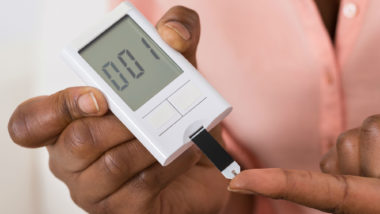 The dangers of amputation due to diabetes are present for anyone who has been diagnosed with the condition, Unfortunately, the Food and Drug Administration has now warned that certain medications can increase the risk of lower limb diabetic amputations. According to the FDA, patients taking Invokana, Invokamet, or Invokamet XR face a heightened risk of amputation.
The dangers of amputation due to diabetes are present for anyone who has been diagnosed with the condition, Unfortunately, the Food and Drug Administration has now warned that certain medications can increase the risk of lower limb diabetic amputations. According to the FDA, patients taking Invokana, Invokamet, or Invokamet XR face a heightened risk of amputation.
The loss of a limb from diabetic amputation can change a patient’s quality of life significantly. Since certain patients might already be high risk for amputation, doctors might recommend that some other method of treatment is more appropriate.
The connection between diabetes and amputation has long been established, but recent studies and adverse event reports indicate that certain diabetes medications actually increase that risk instead of reducing it.
In 2017, the Food and Drug Administration released a warning about amputation due to diabetes drugs such as Invokamet and Invokana. Two major clinical trials provided the data necessary to identify that there was a connection with the use of these drugs and diabetes leg amputation or diabetic foot amputation.
Patients who develop unexplained symptoms that could indicate the risk for amputation should report these concerns to their physician immediately. Some of the most common symptoms of an impending amputation risk include infections, sores, ulcers or tenderness and pain in the feet and legs.
Anyone who suspects that they have recently developed these symptoms is recommended to continue taking their medication until too they have an opportunity to speak to their physician. The boxed warning has been required by the FDA to be added by the medications for increasing the risk for a patient’s dangers of amputation.
There are certain factors present in diabetic patients that may already place those individuals in a higher risk category for having a limb removed. These include those patients who have a previous medical history of amputation, diabetic foot ulcers, neuropathy or peripheral vascular disease.
The dangers of untreated type-2 diabetes can be severe, including kidney and nerve damage, heart disease, and blindness. However, foot and leg amputations have been shown to occur twice as often in those patients who have been treated with canagliflozin-based medications like Invokana and Invokamet when compared with placebo treatments.
One of the studies as reported in the journal The Lancet indicated that canagliflozin successfully reduced the risk of cardiovascular events by as much as 14 percent but doubled the risk of amputation. The two studies used to determine the FDA’s new warning identified that amputations of the middle of the foot and the toe were the most common followed by amputations above and below the knees. Some patients even had more than one limb amputated.
Following a limb amputation, certain types of physical activity might be more difficult. Since patients are most likely to have a lower limb amputation with these kinds of medications and this can change their ability to walk or function normally, any patient in a high-risk category should evaluate whether or not Invokana and Invokamet are the right choice.
Contact an experienced Invokana attorney today to discuss your legal options if you or a loved one had to undergo a lower limb amputation after taking Invokana, Invokamet or Invokamet XR, including a toe amputation, foot amputation, knee amputation or leg amputation. Fill out the form on this page to obtain a FREE case evaluation with an Invokana amputation attorney.
ATTORNEY ADVERTISING
Top Class Actions is a Proud Member of the American Bar Association
LEGAL INFORMATION IS NOT LEGAL ADVICE
Top Class Actions Legal Statement
©2008 – 2026 Top Class Actions® LLC
Various Trademarks held by their respective owners
This website is not intended for viewing or usage by European Union citizens.
Get Help – It’s Free
Join a Free Invokana Class Action Lawsuit Investigation
If you qualify, an attorney will contact you to discuss the details of your potential case at no charge to you.
Please Note: If you want to participate in this investigation, it is imperative that you reply to the law firm if they call or email you. Failing to do so may result in you not getting signed up as a client or getting you dropped as a client.
E-mail any problems with this form to:
[email protected].
Oops! We could not locate your form.












